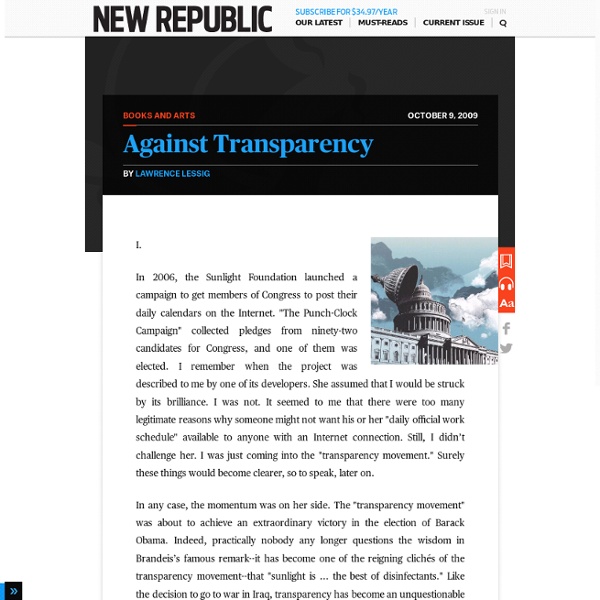Some Internet-Use Tracking Firms to Reveal What They Know
Why no one cares about privacy anymore | Politics and Law
Google co-founder Sergey Brin adores the company's social network called Google Buzz . We know this because an engineer working five feet from Brin used Google Buzz to say so. "I just finished eating dinner with Sergey and four other Buzz engineers in one of Google's cafes," engineer John Costigan wrote a day after the Twitter-and-Facebook-esque service was announced. You might call Brin's enthusiasm premature, especially since privacy criticisms prompted Google to make a series of quick changes a few days later. But a funny thing happened on the way to the courthouse: relatively few Google Buzz users seem to mind. My hunch is that Google Buzz will continue to grow because, after nearly a decade of social-networking experiences (its great-granddaddy, Friendster, started in early 2002), Internet users have grown accustomed to informational exhibitionism. Norms are changing, with confidentiality giving way to openness. --Richard Posner, federal judge --Mark Zuckerberg, CEO, Facebook
A hidden world, growing beyond control (Printer friendly version)
Monday, July 19, 2010; 4:50 PM The top-secret world the government created in response to the terrorist attacks of Sept. 11, 2001, has become so large, so unwieldy and so secretive that no one knows how much money it costs, how many people it employs, how many programs exist within it or exactly how many agencies do the same work. These are some of the findings of a two-year investigation by The Washington Post that discovered what amounts to an alternative geography of the United States, a Top Secret America hidden from public view and lacking in thorough oversight. After nine years of unprecedented spending and growth, the result is that the system put in place to keep the United States safe is so massive that its effectiveness is impossible to determine. The investigation's other findings include: * An estimated 854,000 people, nearly 1.5 times as many people as live in Washington, D.C., hold top-secret security clearances. An alternative geography This is not exactly President Dwight D.
HADOPI pour les nuls : explications et contournements
Vendredi 3 avril 2009, l’assemblée nationale a adopté la loi "Création et Internet", avec seulement 16 députés dans l’hémicycle. Pourtant ce texte risque, s’il est appliqué, d’apporter de profondes modifications au web français tel que nous le connaissons. Cette loi instaure entre autres la "riposte graduée", qui en cas de téléchargement illégal, après l’envoi de 2 avertissements, prévoit la coupure de la connexion internet de l’abonné contrevenant. Tout d’abord pour qu’il y ait sanction, il faut qu’il y ait constatation d’une infraction. L’IP (qui signifie « Internet Protocol ») est en effet le point d’entrée sur la toile. Chaque machine connectée doit donc avoir une IP unique, ce qui pose un premier problème puisque le nombre d’IP possibles est déjà inférieur au nombre de machines connectées dans le monde. Vu de l’extérieur, tous les employés de l’entreprise et tous les membres de la famille ont donc la même IP. Contournement : La chasse est ouverte : la collecte des IPs.
forget-privacy--its-conversation-google-is-killing-8539621
Now, thanks to US electronics, smart will mean being topped and tailed by Google. At last week’s annual SXSW conference in Texas – a media and technology love-in – the internet search company unveiled not just the first full demonstration of its glasses which can search the internet and display results in the user’s eyeline; but also prototype electronically enhanced footwear which will provide instant feedback to the wearer as to his or her physical performance and needs, via a speaker embedded in one of the shoes’ tongues. Or, as the headline in Scientific American put it: “Shoe puts mouth in foot.” I’m far from persuaded that this innovation is not a spoof, a rare example of humour from the techno-visionaries at Google. Perhaps we shouldn’t joke about it. As Professor Michael Franklin observed in The Death of Privacy? Thus undistracted, I am able to study my fellow human beings and even engage them in conversation in train carriages. d.lawson@independent.co.uk



